 If Internet chatter is any indication of reality, Spartan Race’s “identity crisis” has finally trickled down to the participants themselves. The race’s popular acronym, STFU (Spartan The F*%# Up), has become the verbal equivalent of a sword, splitting Spartan racers into two distinct camps and revealing differing philosophies of what obstacle racing is and should be.
If Internet chatter is any indication of reality, Spartan Race’s “identity crisis” has finally trickled down to the participants themselves. The race’s popular acronym, STFU (Spartan The F*%# Up), has become the verbal equivalent of a sword, splitting Spartan racers into two distinct camps and revealing differing philosophies of what obstacle racing is and should be.
Spartan made its mark in obstacle racing by popularizing a ‘sport’ that was the antithesis of traditional, sanitized athletic events. Obstacle racers were a different breed with participants from all walks of life enamored with the rugged, unruly, rebellious sport that mirrored the dirtiness of life struggles and accomplishments. The weekend warriors competed side-by-side with elites. Camaraderie was evident among all cross-sections. Joe De Sena wanted to “rip people off their couches,” and force them to respond to harsh, difficult, and sometimes unfair challenges. He did just that, while simultaneously and perhaps unwittingly, giving rise to a close-knit community who ate, breathed, and slept obstacle racing.
Then Spartan Race and OCR itself began to emerge from infancy. Introduce Raptor Capital Management, Reebok, pro-team sponsorships, larger cash prizes, De Sena’s proclaimed goal to get Spartan Race in the Olympics, and the sport and the participants within began to shift ever so slightly. Competitive racers now had more on the line than just weekend bragging rights. Sponsorships, national exposure, and prize money was at stake. Spartan began attracting high caliber athletes from other sports lured by cash prizes and the possibilities of making their mark.
That’s when the identity crisis started becoming evident…at least to those who are attentive to the OCR industry. Spartan had created almost competing goals with itself. How could it cater to the masses who flocked to the races because of the OCR ‘tradition’, yet at the same time create legitimacy within an emerging sport that could eventually catch the eye of the Olympic Committee? Several serious OCR insiders noted this, but it didn’t spread to the greater OCR population until recently.
A growing number of Internet fights/discussions/debates/quarrels have started popping up, seemingly every day, and they all have their roots in the aforementioned differing philosophies of obstacle racing. Those who embraced OCR as a legitimate ‘sport’ (regardless of Olympic hope) became more vociferous in what needed to happen with regard to rules, standardization, etc.
The select few who are semi-pro obstacle racers see potential for the sport as a whole and for them personally. Yet whenever anyone voiced those concerns, “traditionalists” would push back in fear that OCR would be ruined, sanitized beyond recognition. Competitive racers who suggested that steps needed to be taken to ensure fairness in competition have often been met with cries of “STFU!!!!”
Debates raged; some calm, reasoned, and civil….others not so much. Unfortunately STFU has been used as a sometimes unconditional response to calls for progress or change of any kind. That acronym, which at one time was extremely popular throughout Spartan vernacular, has slowly become a proverbial 4-letter word among a contingent of racers. “I’ll be happy if I never hear ‘STFU’ again” has been muttered more than a few times.
Whether it is a blessing or a curse, I can see validity in both sides of the argument. Traditionalists fell in love with the attitude and philosophy of STFU and are unwilling to give that up. I understand that completely and would hate to see that spirit die. That attitude has literally changed lives and ultimately is the heart and soul of OCR. At the same time, others have visions of obstacle racing that go beyond a weekend of improving themselves by overcoming challenges.
What SHOULD Spartan’s identity be and is it really a CRISIS?
As a business, Spartan Race depends on the “masses” of people who show up to participate, challenge themselves, be a part of a group, and simply do the best they can. They form one side of Spartan Race’s identity and provide much more than a significant source of funding for the races. On the other side of the equation is a group of athletes who have embraced the idea that OCR can be a true “sport”. That philosophy requires a different framework, one that has clear rules, fairness, and sacrifices a portion of the rebellion for a level and safe playing field. That philosophy does not meld all that well with a traditional OCR philosophy.
Can both visions be achieved? Perhaps, but it will not happen overnight and it may never occur. Perhaps Spartan is fine with dueling identities and trying to achieve two goals. De Sena himself created both identities. Can we as a racing community be fine with it? I certainly hope so because I remember a time not too long ago when STFU was uniting, not the inflammatory term it is becoming. At the end of the day, I think the Spartan community will survive the debates. We’re a pretty good group of people and if we take the time to rationally discuss and understand the philosophical differences, we will continue to make this sport the best on earth.
Author’s note: For the sake of illustrating Spartan’s dual identities, I painted a picture with broad swaths by placing all obstacle racers into 1 of only 2 categories. Obviously that is not 100% true and there are varying degrees of thoughts and opinions on this subject. Some that I have placed in one category may agree more with the other side’s philosophy. I know many who fall in the traditionalist camp who are ardent supporters of progression toward legitimized sport. I also know elite competitors who see the value of the traditional spirit. Some, like myself, can see both sides of the issue. I know others who have no opinion either way and will simply enjoy whatever Spartan Race has to offer.
I should also point out that this article is clearly a vast oversimplification of nuances involved with serving customer bases with 2 different sets of needs. Painting the extremes makes it easier to discuss the issues at a more conceptual level without getting lost “in the weeds”. To address all sides of the issue would require a dissertation. I’ve already written one of those and I have no desire to do it again! 🙂
If you liked this article (or even if you didn’t) you can find more like it at the author’s obstacle racing website: OnMyWayToSparta.com
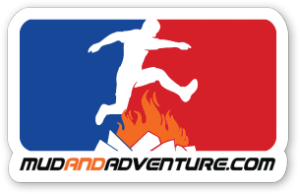


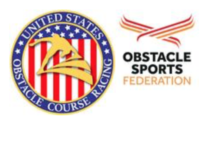









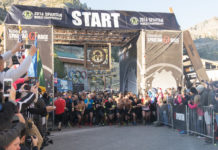

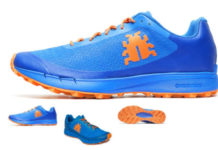
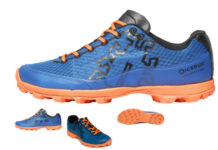










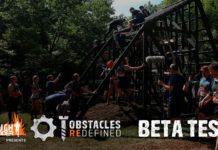



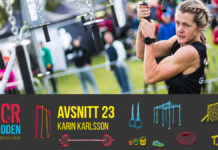



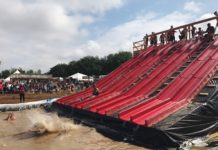










Jeff, I don’t think the issue at hand is an identity crisis per se as much as it could be that the die hard elites may be taking the sport of Spartan Race more seriously than those who have conceptualized it and brought it to be. A good problem to have as a business if you ask me.
I think the infighting (I have been guilty of it), comes from the lack of direction and clear rules in the sport side of things. We may be just a little inpatient in the sport’s evolution. In other words we are ready to compete.
Paul, you may very well be right. The differing philosophies of participants may be driving the issue. It could be that Spartan Race does not see a conflict with the those philosophies and that those who appreciate the ‘sport’ of the debate are just innovators and pushing faster than a company (and an industry) can evolve. Nothing wrong with that at all. It is just interesting to watch as this all unfolds. 🙂
I should also point out that this article is clearly a vast oversimplification of nuances involved with serving customer bases with 2 different sets of needs. Painting the extremes makes it easier to discuss the issues at a more conceptual level without getting lost “in the weeds”. To address all sides of the issue would require a dissertation. I’ve already written one of those and I have no desire to do it again! 🙂
I enjoy Spartan, Tough Mudder and BattleFrog/BoneFrog races. My conclusion is that there should not be a standard and that each race should develop their own brand since they attract different people.
This week I wore my 2014 Beast t-shirt to my Tough Mudder Legionnaires (a group of people who have run many Tough Mudders) meetup and some Mudders talked about how Spartan is “built to break you”. They did not like the idea of penalty burpees and walked past them during the one (or few) Spartan events they tried. They also stereotyped Spartans as cut throat and only concerned with their time rather than helping others on the course (which I have not found to be the case in the Open heats that I run).
Takeaway is that Mudders are runners at their core who enjoy doing the extra stuff but don’t like penalties or competition in their mud runs. Spartans are strength & conditioning/fitness/CrossFit types who want to see how far they can push themselves. I did one BattleFrog race (awesome) and generally those participants were far and away bigger and stronger looking than participants at any race I have ever been a part of. A larger % of big dudes.
The military type races (include Civilian Military Combine here) are a third “flavor” of OCR. I get the idea that they are built to be challenging yet standardized and not “built to break you”. If you are looking for a sport standard for OCR I think this is the version that wins.
As you can tell by the length of my post I am passionate about the sport and hope that all of the brands develop and continue to enjoy more and more success.
I started running some OCR courses about 4 years ago. While i did it for pure fun, I was tired of the same old run in mud and do some mediocre obstacles. When I started witnessing older out of shape smokers getting medals my feeling of accomplishment for what I had done, evaporated on spot. Don’t get me wrong, I love meeting and chatting with all types of people at the events and happy to see them out on the course then sitting on the couch; but when you start craving more challenging courses then these events become amateurish. So the next on my list was ToughMudder. We all know about them and I’m sure we’ve ran those as well. My first mudder I cramped up and had to skip some obstacles. It wasn’t that i didn’t try them, it was some i just physically couldn’t complete. I finished the race, but it just didn’t feel right. How could i finish and get my “finishers” items with out completing the obstacles. So I had to run another to “earn” it. This is where Spartan came in. During these run’s I had been following the Spartan races and “death race” and I dubbed it the “Elite” race. If i could do a Spartan then I would be at closure in a way. Now I’m not an elite OCR racer. When i was younger I played competitive sports but now in my 30’s i just wanted something to push me again on my own terms at my own level. After running this past Ohio Sprint, i have to say my expectations as to what a Spartan was vs. what it is; twofold. I felt the course was not as challenging as i would have liked. I wanted it to be hard and to weed out the weak 🙂 and people fail an obstacle and not do the penalty. Politely pointing out the morals of a Spartan racer, i was overlooked or ignored. So to me this was just another race, nothing to stand out from the other OCR events. I feel as the years has gone by and the sponsorship have come in, the courses are to just attract the mass crowds. Thanks for your money and here is your goody bag.
Now, is the sprint geared towards the weekend warriors and the Super/Beast for the more hardcore runners? Could be, id be interested to hear what others have to say that have ran all three. Maybe i need to STFU and train for the super/beast 🙂
Try Gladiator Assault Challenge if you want a totally toughass course. They are staged exclusively at ski areas in the Midwest, so massive hills…5 – 8 miles with 30 military obstacles.